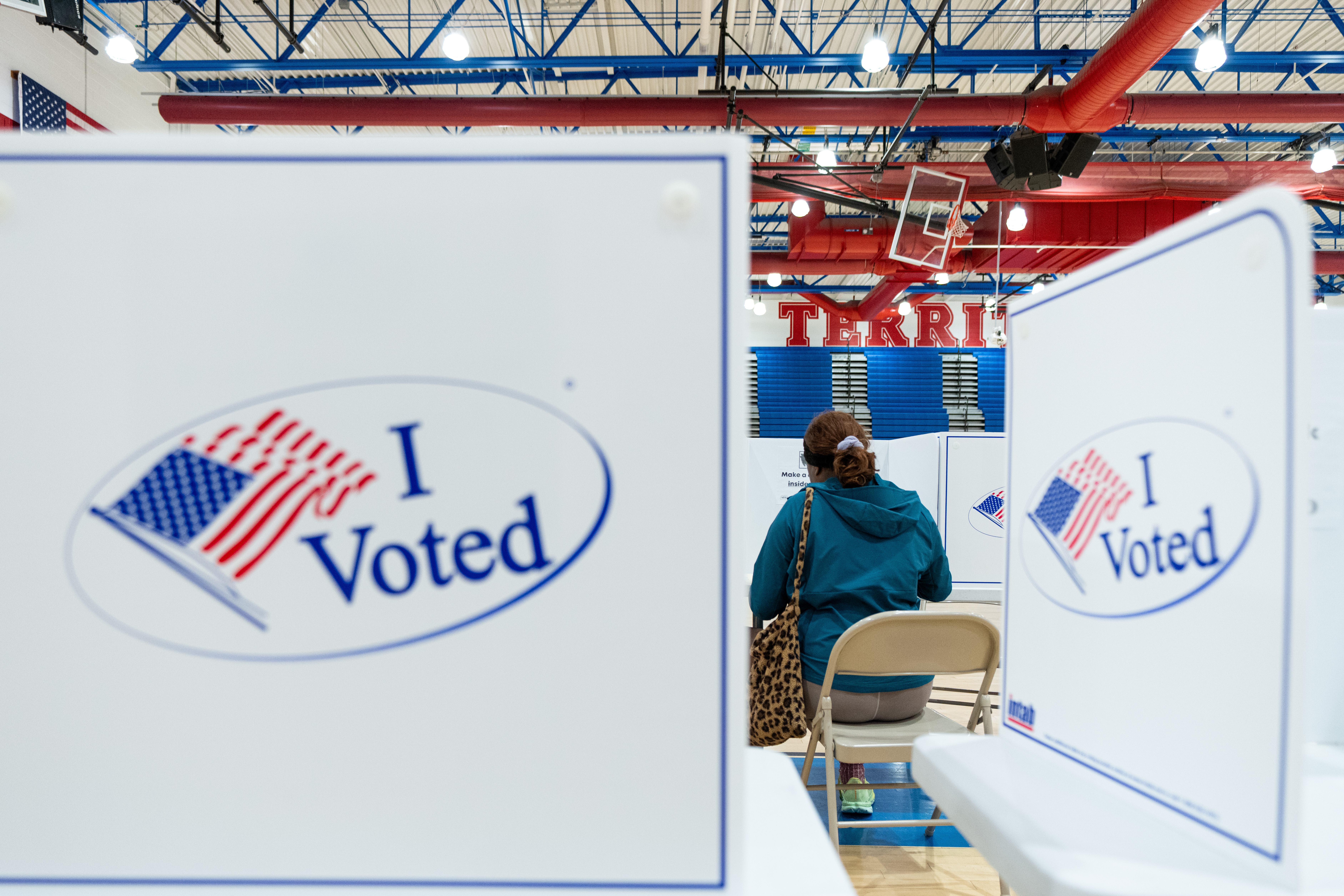A year after Elijah McClain was stopped by police in suburban Denver on his way home from the store, people gathered on a football field on Sunday night to dance and sing and to also call for justice for him and his family.
The event was intended as a way to celebrate the life of the 23-year-old massage therapist who died several days after being put in a neck hold by police and injected with the sedative ketamine. The fatal encounter happened a year ago Monday after a man called police to report that McClain seemed “sketchy” because he was waiving his hands and wearing a mask — something his family said he wore it because he had a blood condition that caused him to get cold easily.
The three officers who confronted McClain in Aurora, Colorado, have not faced any discipline for their actions in the encounter. A district attorney said last year he could not pursue criminal charges because an autopsy did not determine how McClain died, but state Attorney General Phil Weiser is looking at whether criminal charges are warranted in the case. Gov. Jared Polis ordered him to look at the case in June after outrage over McClain’s death grew amid protests over racial injustice following the death of George Floyd in Minneapolis.
Like many other people, MiDian Holmes, 39, of Denver only learned of what had happened to McClain a few miles from her home after his death got new attention following Floyd’s death. Holmes, a mother of a daughter and two sons, heard Elijah McClain’s mother, Sheneen McClain, ask protesters in May why they did not show up for her son.
Get top local stories in San Diego delivered to you every morning. Sign up for NBC San Diego's News Headlines newsletter.
“She lost a joy. She has lost a treasure and she has not had time to heal because she hasn’t had justice,” she said.
Holmes said the festival-like atmosphere of the anniversary event gave people a chance to talk to each other without fear of being interrupted by police or tear gas, opening the door to possible innovation and motivation.
A contingent of activists from Louisville, Kentucky, who joined a rally at the Colorado Capitol on Saturday, were recognized during the event. Colorado activists had earlier traveled there to protest the death of Breonna Taylor.
U.S. & World
The music ranged from Michael Jackson to the Cupid Shuffle, which the DJ encouraged everyone to join, to “We Shall Overcome” and the Black national anthem “Lift Every Voice and Sing.”
The anthem was an instrumental version but H. Malcolm Newton, a former opera singer, sang along. “Let us march on 'til victory is won,” he sang as he tapped his brown leather shoe on the ground and his fingers on the railing he was leaning on.
A trio of violinists also played in tribute to McClain, a violinist who liked to play for cats at the animal shelter to comfort them. They made sure to play Pachelbel’s Canon, which violinists were performing at a violin vigil for McClain earlier this summer when it was interrupted by police deploying pepper spray and foam rounds. Police said they were trying to stop agitators. Cynthia Katsarelis said they wanted finish what those violinists had started.
“Just like we will finish the work we need to do,” she told the crowd.
When police approached McClain last year, body-camera video shows an officer getting out of his car and saying, “Stop right there. Stop. Stop. ... I have a right to stop you because you’re being suspicious.”
In the video, the officer turns around McClain and repeats, “Stop tensing up” and says, “Relax, or I’m going to have to change this situation.”
Other officers join to restrain McClain, who tells them that he had stopped his music to listen to them and asks them to let him go.
The officers move McClain over the grass in front of an apartment building but what happens next is not clear from the video. Police have said one of the officers applied the neck hold.
All three of the officers’ body cameras eventually came off during the struggle but continued to record audio. An officer says McClain grabbed one of their guns. McClain can be heard trying to explain himself and sometimes crying out.
“I’m just different. I’m just different, that’s all. That’s all I was doing. I’m so sorry. I have no gun. I don’t do that stuff," he said, as the officers talk among themselves.
One officer eventually retrieves his camera, which shows McClain handcuffed and laying on his side as another officer leans on him. The leaning officer says, “Move your camera dude” but the camera doesn’t move and continues to show the scene.
McClain suffered two heart attacks on the way to a hospital and was taken off life support six days later.
The increased spotlight on the case recently has made it more difficult for McClain’s family to grieve his loss.
McClain’s mother, Sheneen McClain, initially had planned on Sunday to take the same route her son was taking to walk his “spirit home” but later cancelled the event, saying in a Facebook post that the event had gotten out of hand. She endorsed the event at the football field at a Denver recreation center but did not speak, sticking with a vow not to talk publicly until the police officers who stopped her son are charged.
She was also upset that McClain’s pleading words to police have been invoked by those protesting his death. They have shown up on signs and at protests and were read in an Instagram video by Janelle Monae, Meagan Good, Jonathan Van Ness and others calling on Colorado officials to pursue charges against the officers.
“IT’S NOT OKAY TO REPEAT MY SON’S DYING WORDS BECAUSE THATS ALL YOU CAN THINK TO DO. THINK HARDER!!!! THAT HURTS ME,” Sheneen McClain wrote.
Mari Newman, the McClain family’s lawyer, said they welcome support from other people who are sharing the pain and outrage over McClain’s death but do not want to serve as a kind of “masters of ceremony” as they grieve.
“It’s just a very challenging time for them emotionally,” she said.



